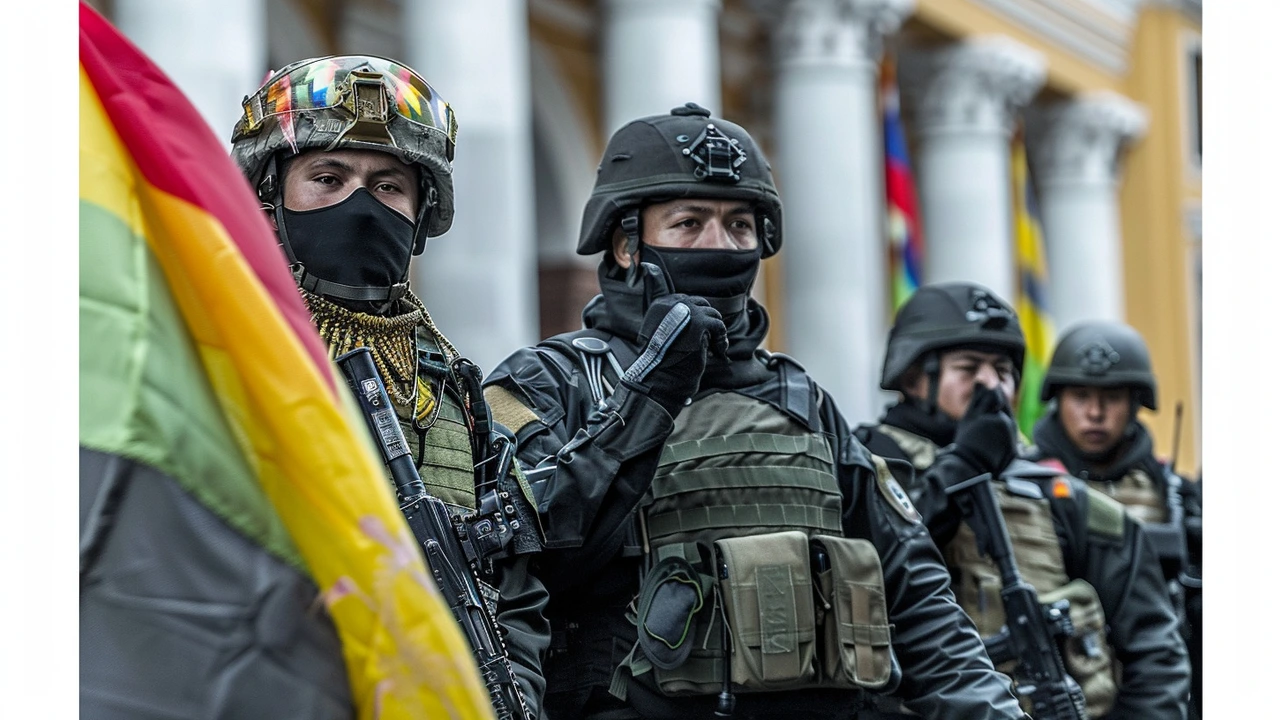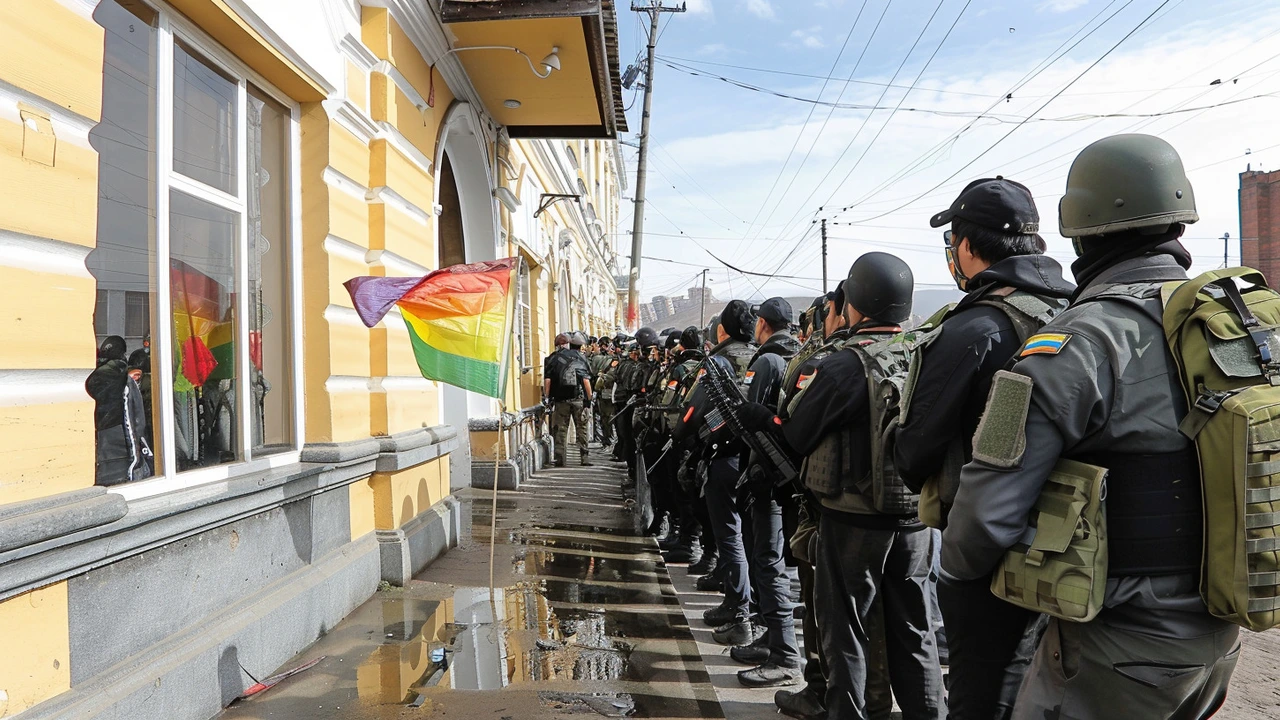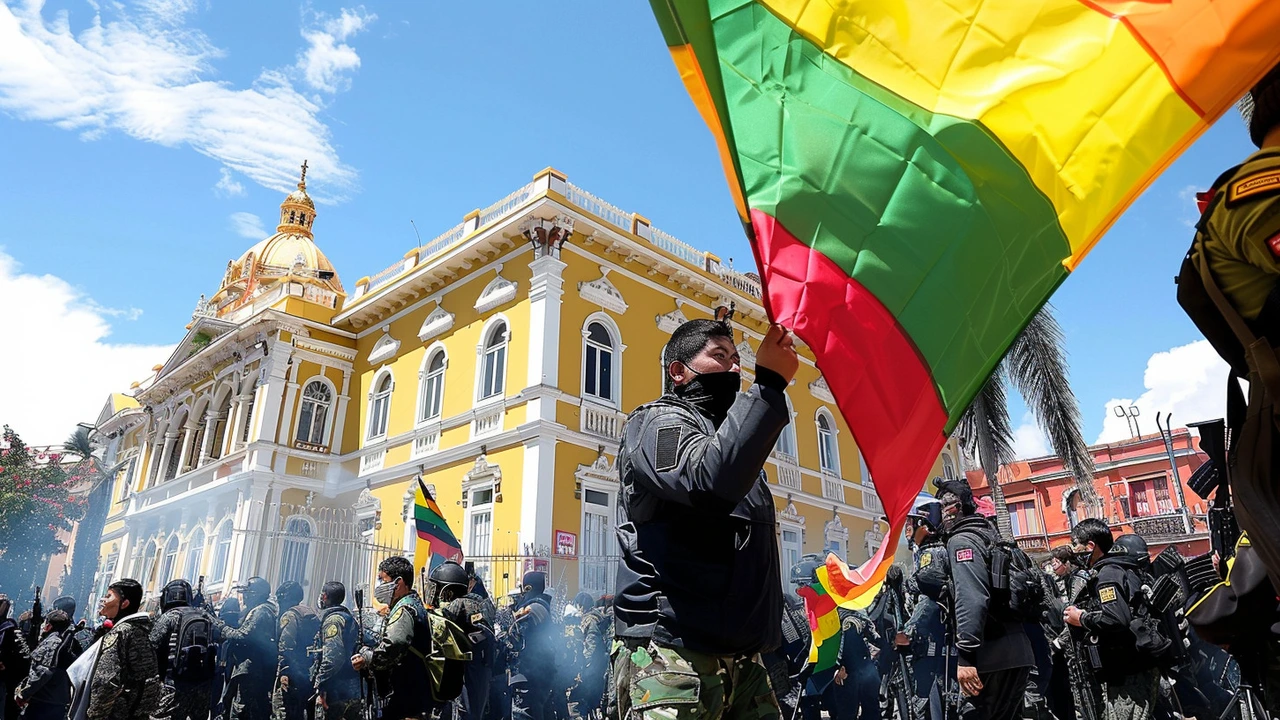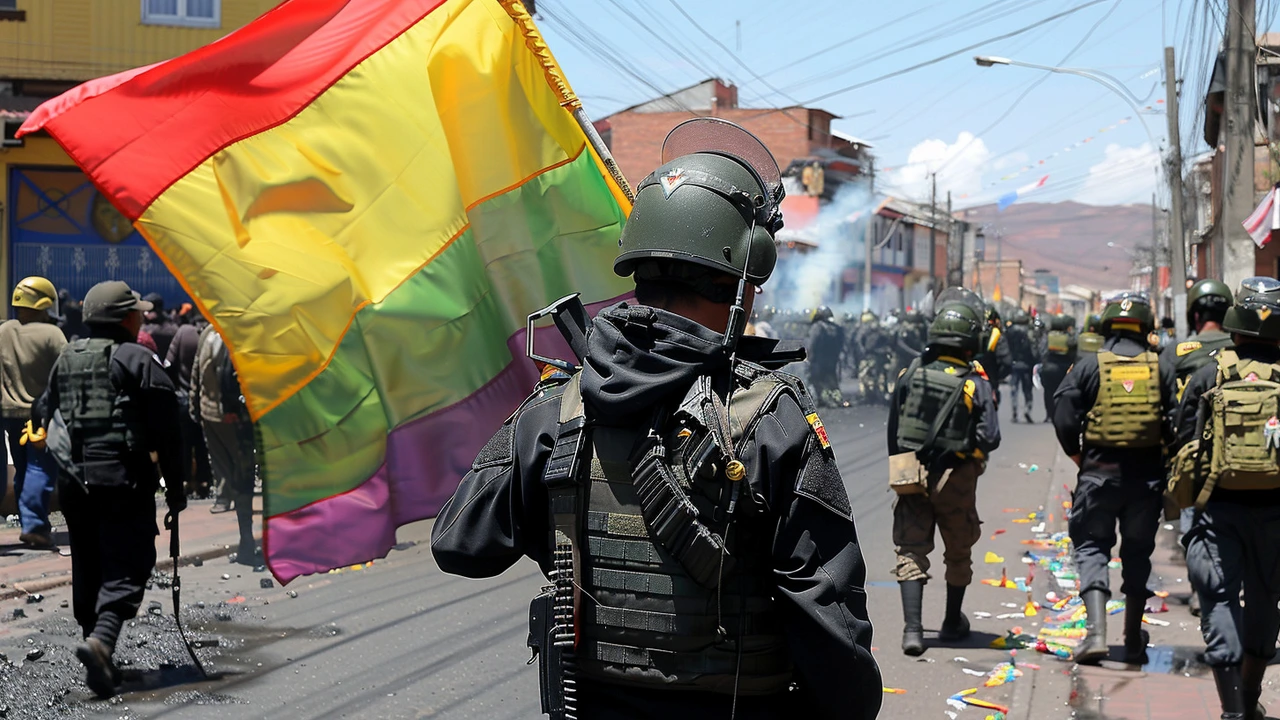Allegations of a Coup in Bolivia
Bolivia is currently embroiled in a political crisis following accusations by President Luis Arce of an attempted military coup. The tension erupted when armored vehicles were seen surrounding the government palace, raising concerns of a rebellion within the country's armed forces. Arce wasted no time in confronting the general commander of the army, who appeared to be spearheading the operation.
In a dramatic standoff, President Arce asserted his authority as the nation's leader and demanded the immediate withdrawal of troops. Despite the tension, the general commander acknowledged Arce as the commander in chief but insisted on the necessity of a new Cabinet. The situation remains fluid, as uncertainties loom over the political landscape in Bolivia.
Arce's Commitment to Democracy
President Arce has been vocal about his commitment to upholding democracy amidst the turmoil. He emphasized the importance of democratic principles and the rule of law, condemning the actions of military personnel who have seemingly turned against him. In a bid to stabilize the situation, Arce announced the appointment of new military leaders, replacing those he believes are responsible for the attempted coup.
Former President Evo Morales, a significant political figure in Bolivia, has also weighed in on the events. Morales has described the military's movements as indicative of a brewing coup, a claim that has further intensified the political climate. With Morales's backing, Arce appears determined to navigate through the crisis and maintain control over the government.

Labor Union's Response
The country's largest labor union has expressed its support for President Arce's administration. In response to the alleged coup attempt, the union initiated an indefinite strike in La Paz, demonstrating solidarity with the government. The union's actions reflect a broader sentiment among segments of the population who are rallying behind Arce during this critical period.
The union's strike adds another layer to the already complex situation, highlighting the challenges faced by Arce and his government. As the strike continues, it remains to be seen how it will impact the overall political dynamics in the country.
Condemnation from Regional Leaders
The incident has not gone unnoticed by regional leaders and organizations, many of whom have condemned the military's apparent rebellion. The political leaders of neighboring countries, as well as various international bodies, have expressed their concerns over the volatile situation in Bolivia. They have called for the respect of democratic principles and the peaceful resolution of conflicts.
In an official statement, a consortium of regional leaders emphasized the importance of stability in Bolivia. They urged both the government and military to engage in dialogue to resolve their differences and to avoid any actions that could further destabilize the country. The international community's involvement underscores the potential broader implications of Bolivia's internal strife.

Internal Party Conflicts
The current crisis is also shaped by underlying internal party conflicts between President Arce and former President Morales. These tensions have been simmering for some time and seem to be coming to a head as the 2025 elections approach. The power struggle within Bolivia's ruling party adds an extra dimension to the already volatile political scenario.
Arce and Morales, despite their shared history and political affiliations, have found themselves at odds over various policy and strategic decisions. This rift has been instrumental in creating fault lines within the party, further complicating the attempts to present a united front against external and internal challenges.
Historical Context
Bolivia has a history of political instability and military coups. The current events are reminiscent of previous episodes where the military has played a dominant role in the country's political affairs. Understanding this historical context is crucial to comprehending the gravity of the present situation.
The Bolivian people have endured cycles of hope and disappointment as successive administrations struggled with governance and stability. The memories of past coups and political upheavals remain fresh, influencing the public's perception of the current crisis. The enduring question is whether Bolivia can break this cycle and achieve a lasting democratic stability.

Looking Ahead
As the situation develops, all eyes are on Bolivia and its leaders. President Arce's ability to navigate through this crisis will be decisive for the country's future. The broader implications for Latin America also cannot be ignored, as regional stability often hinges on the events in individual nations.
The support from labor unions and former President Morales can potentially bolster Arce's position, offering a semblance of unity amid the strife. However, the demands for a new Cabinet from within the military signal that the path to resolution will not be straightforward.
In conclusion, Bolivia finds itself at a crossroads, with democracy and stability hanging in the balance. The actions and decisions of its leaders in the coming days will shape the trajectory of the nation and its place in the regional political landscape.
